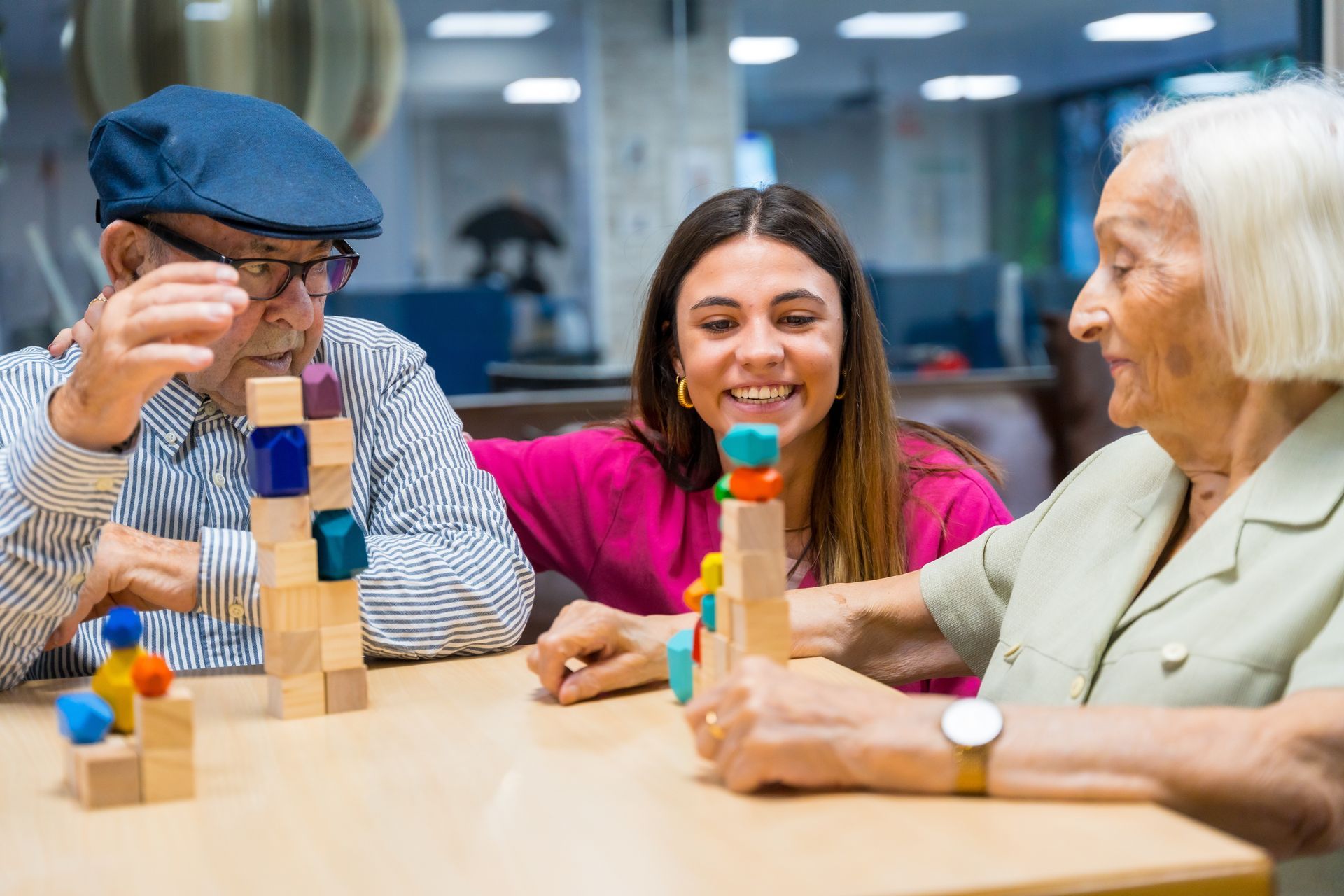BLOG
Reminiscence Therapy: The Benefits of Sharing Memories and Life Stories for Seniors
Reminiscence therapy, which encourages seniors in assisted living to revisit memories and share personal life stories, can offer profound emotional benefits. Cognitive abilities might change as people age, but memories often remain vivid, offering a powerful connection to their past and sense of identity. Reminiscence therapy allows seniors to process their experiences and emotions, improving their emotional well-being and quality of life. Additionally, it allows seniors to build connections with others, strengthening their social bonds.
Many assisted living communities have recognized the positive impacts of reminiscence therapy. Not only does it help with emotional expression, but it also improves cognitive function and strengthens mental resilience. Revisiting memories brings joy, stimulates mental activity, and creates a greater sense of purpose among seniors.
The Impact of Reminiscence Therapy on Cognitive Health
Cognitive health can improve significantly through reminiscence therapy. Studies suggest that reflecting on past experiences enhances memory and helps individuals maintain mental clarity. This process allows seniors to practice recalling essential events, names, and faces, which keeps their cognitive faculties sharp. Regular engagement with this therapeutic practice reduces the risk of cognitive decline and may delay the progression of Alzheimer's disease or dementia.

Seniors also benefit from the increased brain activity that comes with reminiscing. When engaging in reminiscence therapy, areas of the brain responsible for memory and emotions are active. Engaging with life stories stimulates neural pathways, improving memory retention and reinforcing cognitive health. Additionally, the act of recalling emotions tied to memories promotes emotional regulation, further supporting mental well-being.
Research supports the effectiveness of reminiscence therapy in seniors with dementia. One study found that patients who participated in reminiscence activities showed improved socialization and reduced behavioral symptoms. Engaging with past experiences offers more than just nostalgia—it can be essential in maintaining cognitive abilities. In communities like assisted living, it can be a structured way of promoting mental wellness for seniors at various stages of cognitive decline.
Social Connections and Emotional Well-being
Sharing memories enhances cognitive function and promotes social connections among seniors. As they share life stories, seniors connect with each other and form deeper relationships. These social bonds are essential for emotional health, as they combat loneliness and isolation. Engaging in reminiscence therapy fosters a sense of community, where individuals can share their experiences and learn from one another.
In addition, reminiscence therapy creates opportunities for family members to participate. Encouraging family members to discuss the past allows stronger family dynamics, leading to stronger emotional connections. Relatives can discover new aspects of their loved one's life, creating bonds and emotional closeness. The opportunity for shared memories fosters a sense of continuity, reducing feelings of abandonment or disconnection.
For many seniors, reminiscence therapy offers a way to revisit important life milestones, such as marriage, the birth of children, or career achievements. These milestones often represent a person’s identity, and achieving them brings a sense of pride. Reflecting on accomplishments strengthens self-esteem and offers seniors the chance to relive positive experiences. Seniors who feel heard and understood are more likely to feel emotionally fulfilled and engaged.
Encouraging Participation in Reminiscence Therapy
Encouraging seniors to participate in reminiscence therapy requires a thoughtful and patient approach. Some individuals may initially hesitate to share memories, particularly if they are emotionally challenging. Creating a safe, welcoming environment where seniors can share at their own pace is essential. Compassionate staff members and family members play a key role in making reminiscence therapy accessible and enjoyable.

Structured memory programs, such as group discussions or memory-sharing games, can help guide reminiscence activities. These programs can be led by trained professionals who know how to help seniors engage without feeling pressured.
Some activities may include using photo albums, music from a senior's era, or even senior scents that evoke nostalgic memories. As these activities are incorporated into daily routines, seniors become more comfortable and confident in participating.
Sometimes, initiating a one-on-one conversation about a senior's past can encourage a senior's participation. For instance, caregivers can ask open-ended questions like, "What was your favorite vacation?" or "How did you meet your spouse?" These prompts gently encourage seniors to reflect on positive experiences. Gradually, seniors may find it easier to open up, making reminiscence therapy a natural part of their routine.
Therapeutic Benefits Beyond Memory
The therapeutic benefits of reminiscence therapy extend beyond cognitive health and emotional well-being. For many seniors, the practice serves as a valuable outlet for self-expression. By revisiting memories, seniors often work through unresolved feelings, whether joy, grief, or regret. Processing these emotions can provide a sense of closure, making reminiscence therapy a form of emotional healing.
The act of talking about life experiences also brings a sense of purpose. Seniors often feel valued when their life stories are shared, as it highlights their individual worth and experiences. Recounting stories to others fosters a sense of pride and accomplishment. This recognition is crucial for maintaining a positive self-image, particularly in senior years when individuals may face age-related challenges.
Furthermore, reminiscence therapy has been shown to reduce symptoms of depression and anxiety for many seniors. Through reflecting on meaningful moments, seniors find comfort and security.
Instead of focusing on loss or health concerns, seniors concentrate on positive life events, which can lead to greater emotional stability. Reducing feelings of sadness and worry enhances their overall quality of life, making reminiscence therapy an essential tool in emotional wellness.
Try Reminiscence Therapy In Assisted Living
Reminiscence therapy offers multiple benefits for seniors, improving cognitive function, emotional health, and social connections. It provides a therapeutic outlet for self-expression and a sense of purpose that is vital in later years. Assisted living communities, such as those that offer tailored activities and programs, help seniors engage with their memories in meaningful ways. As a result, seniors experience improved mental well-being and form closer relationships with peers and family members.
Contact us today if you want to explore reminiscence therapy or other enrichment programs for your loved ones. Assured Senior Living provides personalized care that emphasizes emotional connection and mental health. Let us help create an environment where seniors can share their stories and thrive.














